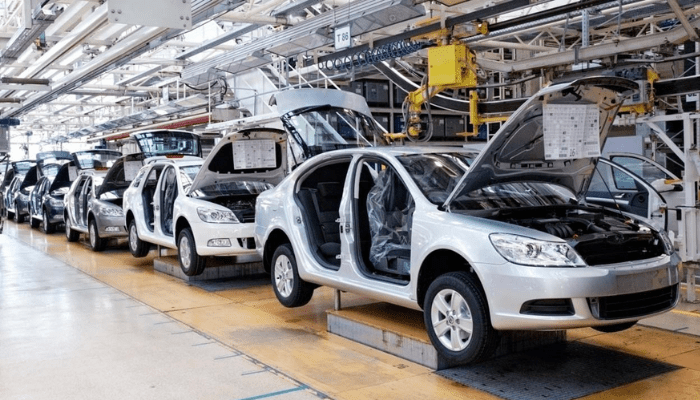Nigeria has the potential to produce about 1.15 million vehicles per year, thereby unlocking vast employment opportunities and significantly boosting the nation’s Gross Domestic Product (GDP), says stakeholders in the Nigerian automobile industry.
This, they say at a summit recently organised by the Nigeria Auto Journalists Association (NAJA) in collaboration with the National Automotive Design and Development Council (NADDC).
In his paper presentation on ‘Developing Nigeria’s Economy Through the Auto Industry’, Board member, Nigeria Automobile Manufacturers Association (NAMA), Benedeth Ejindu said, the global automotive sector plays a catalytic role in driving economic growth, as seen in its significant contributions to employment generation and economic development in other countries.
Ejindu said: ‘For instance, in the United States, the automotive industry employs over 1.7 million people directly, with a single job in the industry creating 10 more. In India, the industry employs 19 million people directly and indirectly, while in South Africa, it employs 110,000 people directly.”
In the automotive value chain, he said, Nigeria is merely scratching the surface, noting that, “It’s like only getting the ‘froth’ of the industry while the rest of the world enjoys the full glass. Our role is limited to the dealership and ownership aspects, just the surface level of the industry. It’s like settling for just the foam on a glass of beverage, missing out on the full, rich experience of the drink itself, which represents the heart of the industry—the factories, the manufacturing, the true essence of auto production. “
Saying that Nigeria offers a unique combination of resources and potential, making it an automotive manufacturers’ paradise, he added that, “we can produce 1.15 million vehicles annually. The necessary resources are readily available, including abundant leather, textiles, and rubber.
“There are iron, steel, aluminium, plastic, elastomers, and more. Additionally, we have the necessary materials for electric vehicle production, including cobalt, lithium, manganese, bauxite, and graphite. These resources are readily available in Nigeria, making us an ideal location for automotive production.”
To unlock the potential of Nigeria’s automotive industry, he advised the government to provide support through legislation, infrastructure development, and incentives, adding that the industry must also be aligned with global best practices, and the country must ban used vehicles to enable local manufacturing to grow.
Advising that local manufacturing companies like Innoson, Anamco, Pan, and all the players in Nigeria do not have to go to build their press or punchline, and the rest of that, they can use shared infrastructure like it is done in China.
“Most of the cars, like pickup trucks and Hiace, have the same mode of body. The OEM or the vehicle maker will now maybe design their own and sell their engines or the components that they want and put in them. But the fact that the factory produces the body shell is just one of them, he pointed out.
Similarly , the minister of Industry, Trade, and Investment, Dr Doris Uzoka-Anite, said, the automotive industry has the potential to be the cornerstone of Nigeria’s economic recovery, offering numerous benefits, including job creation and technology transfer.
Uzoka-Anite, who was represented by the deputy director of the Industrial Development Department, Olumuyiwa Ajayi-Ade, highlighted the government’s recognition of the automotive sector as a critical pillar for economic development and recovery.
Uzoka-Anite emphasised the labour-intensive nature of the automotive industry and its capacity to create thousands of jobs across the value chain, significantly reducing unemployment and providing sustainable livelihoods as she concluded by stressing the importance of collective effort in harnessing the sector’s potential.
The director-general of the National Automotive Design and Development Council (NADDC), Joseph Osanipin, had earlier warned that Nigeria’s auto industry is headed for doom if critical steps are not taken to revive it.
Osanipin, citing the example of Morocco, which stated its National Automotive Industry Development Plan (NAIDP) in 2013 as Nigeria, has successfully grown its auto industry from exporting 23,000 units in 2013 to 460,000 units currently. In contrast, Nigeria has failed to make progress, continuing to import vehicles instead of exporting them, retrogressing from Semi Knocked Down (SKD) to Dismembered Knocked Down (DKD).
He stressed that the industry cannot afford to stand still while technology advances and urged stakeholders to work together to develop Nigeria’s economy through the auto industry.
Credit: LEADERSHIP












Leave a Reply